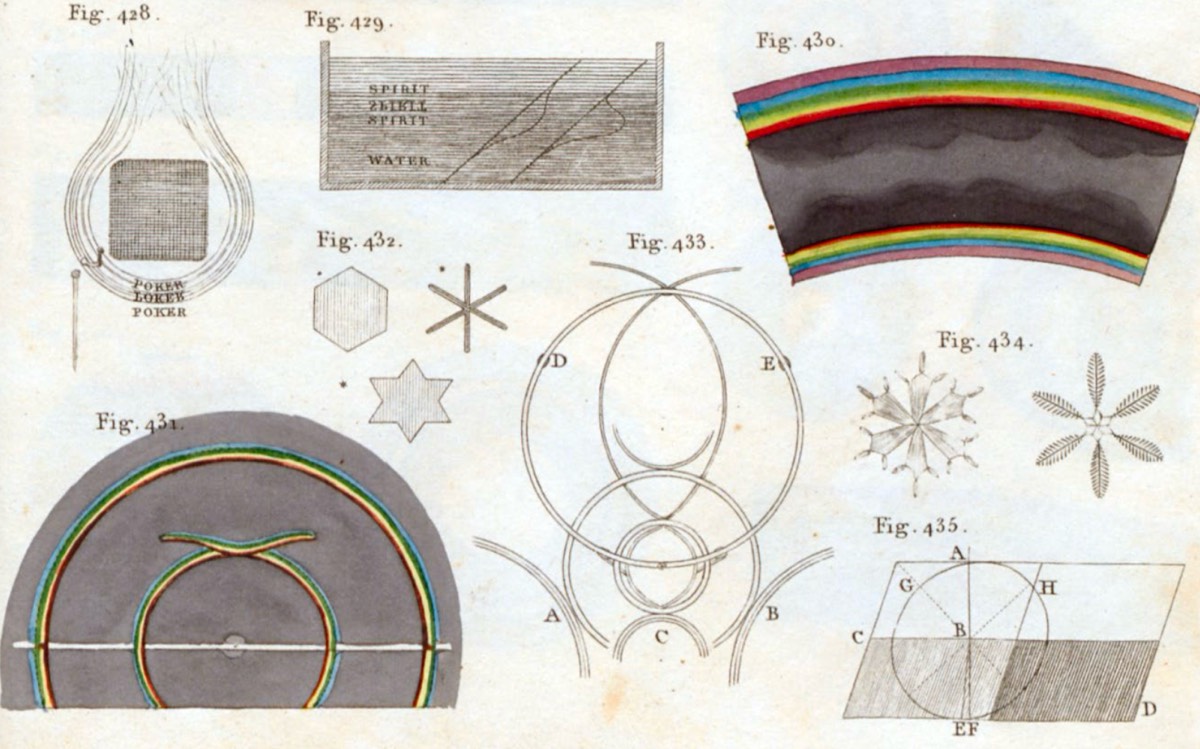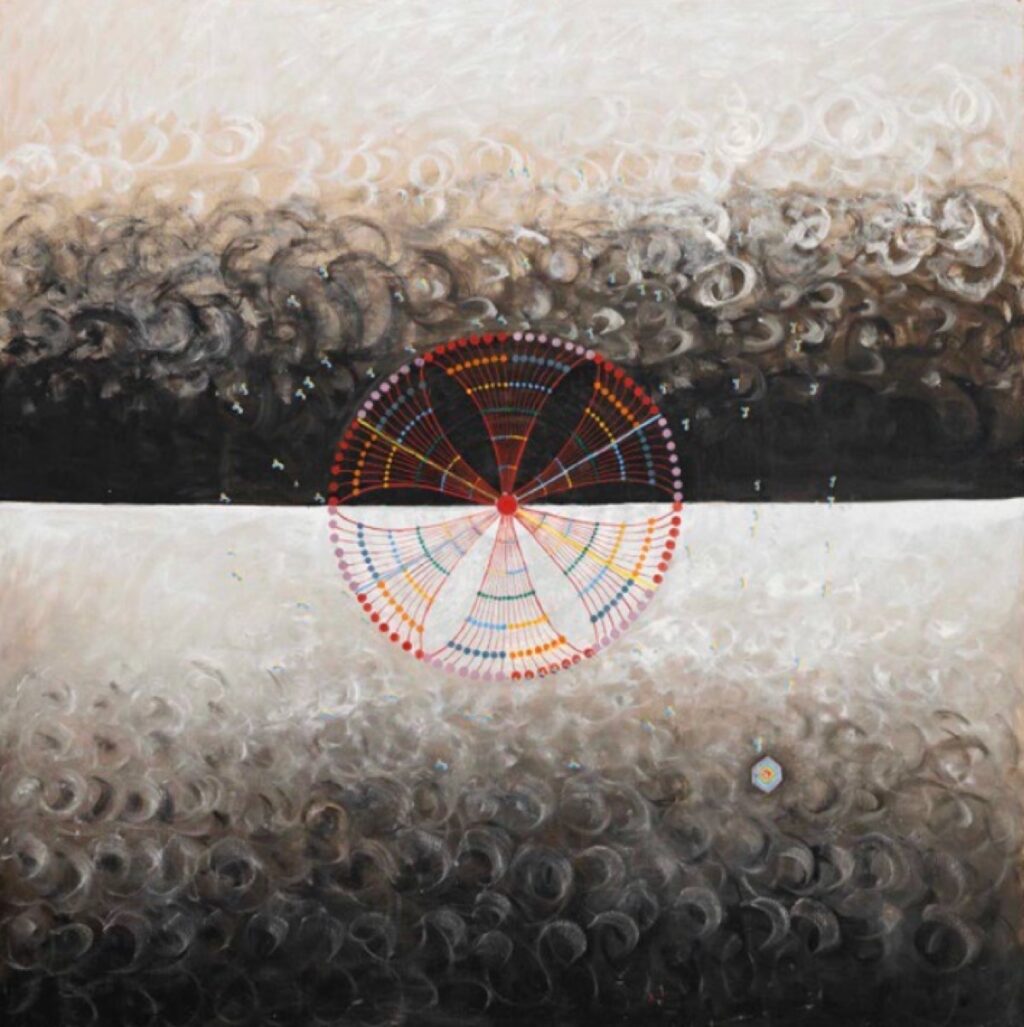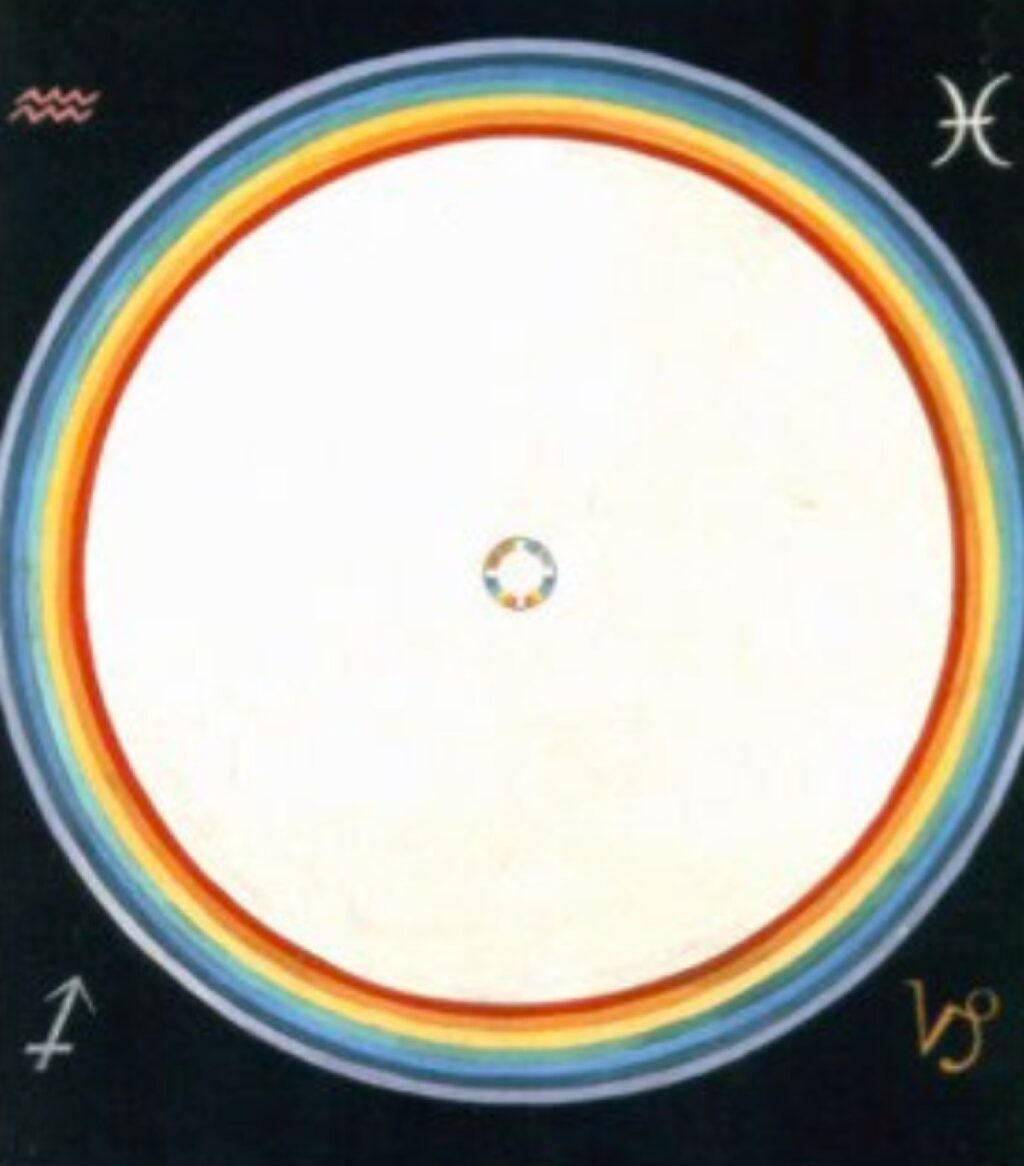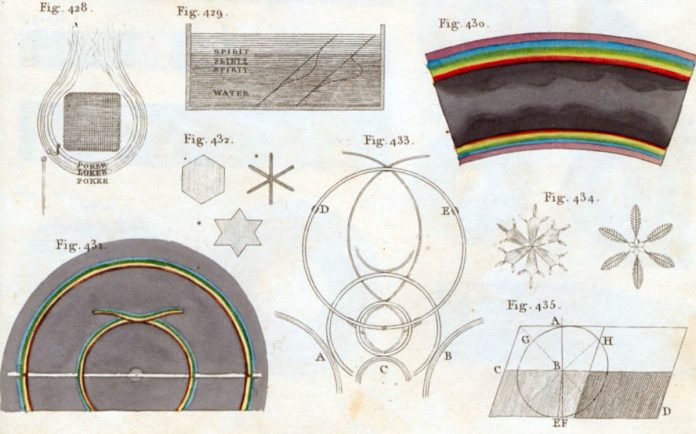Making the case
Young and af Klint were not contemporaries; Young died in 1829, and af Klint was born in 1862. Nor are there any specific references to Young or his work in the academic literature examining the sources known to have influenced the Swedish painter’s work. Yet af Klint had a well-documented interest in science, spanning everything from evolution and botany to color theory and physics. While those influences tended to be scientists who were her contemporaries, Lundgren points out that the artist’s personal library included a copy of an 1823 astronomy book.

Niels Bohr Library and Archives/AIP
Excerpt from Plate XXIX of Young’s Lectures
Niels Bohr Library and Archives/AIP

Hilma af Klimt Foundation
Detail from af Klint’s, Group IX/UW, The Swan, No, 10, 1915
Hilma af Klimt Foundation

Hilma af Klimt Foundation
af Klint, Group IX/UW, The Dove, No. 14, 1915.
Hilma af Klimt Foundation
Detail from af Klint’s, Group IX/UW, The Swan, No, 10, 1915
Hilma af Klimt Foundation
af Klint, Group IX/UW, The Dove, No. 14, 1915.
Hilma af Klimt Foundation
Af Klint was also commissioned to paint a portrait of Swedish physicist Knut Angstrom in 1910 at Uppsala University, whose library includes a copy of Young’s Lectures. So it’s entirely possible that af Klint had access to the astronomy and physics of the previous century and would likely have been particularly intrigued by discoveries involving “invisible light” (electromagnetism, x-rays, radioactivity, etc.).
Young’s Lectures contain a speculative passage about the existence of a universal ether (since disproven), a concept that fascinated both scientists and those (like af Klint) with certain occult interests in the late 19th and early 20th centuries. In fact, Young’s passage was included in a popular 1875 spiritualist text, Unseen Universe by P.G. Tait and Balfour Stewart, that was heavily cited by Theosophical Society founder Helena Petrovna Blavatsky. Blavatsky in turn is known to have influenced af Klint around the time the artist created The Swan, The Dove, and Altarpieces series.
Lundgren found that “in several instances, the captions accompanying Young’s color figures [in the Lectures] even seem to decode elements of af Klint’s paintings or bring attention to details that might otherwise be overlooked.” For instance, the caption for Young’s Plate XXIX describes the “oblique stripes of color” that appear when candlelight is viewed through a prism that “almost interchangeably describes features in af Klint’s Group X., No. 1, Altarpiece,” she wrote

